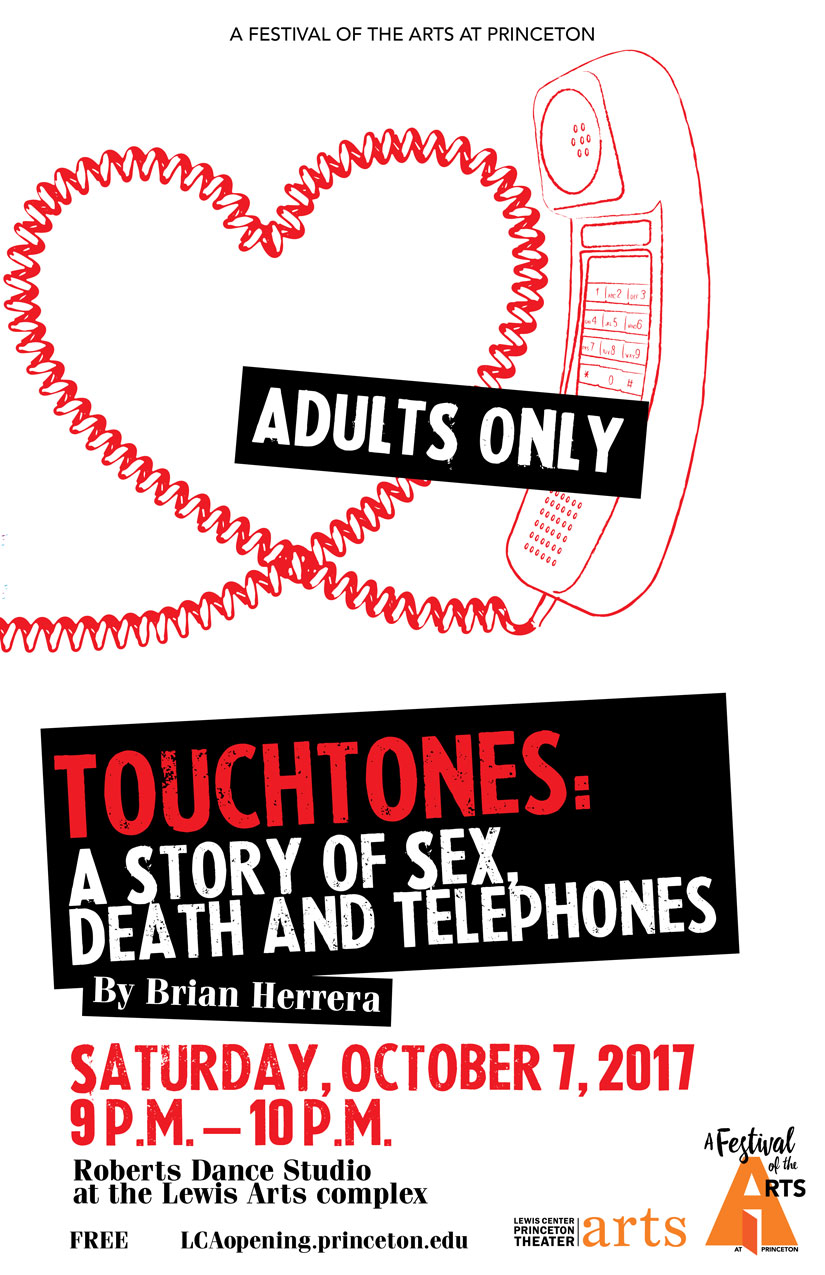Roberts Dance Studio
Staged as a two-part interactive encounter, Brian Herrera’s latest autobiographical storywork project draws upon the several years in the early 1990s that Brian worked as a “moderator” for one of New York’s leading adult party-line services. TouchTones conjures the aural intimacies that whispered across telephonic thresholds during the first decades of the AIDS era. But the TouchTones experience doesn’t begin until you call a special number at a specified time. What happens after that will be entirely up to you … (Adults only)
From Brian Herrera, Evanescence: Three Tales of the Recent Queer Theatrical Past
“Touch Tones begins with a lively, comedic, and mostly expository description of the phone sex moment, by turns historical and autobiographical; this summary description also narrates how I got and did the job of phone sex worker in the early 1990s. The next section, which takes a more conventionally confessional solo-performance stance, details the ways in which my experiences on the job changed me. The final and most improvisatory section bridges the historical distance between my experience then and the audience’s experience now. In this final portion of the performance I “take calls” from the audience—or more precisely I invite the audience to send me text (or “sext”) messages. I respond, using my phone sex personae as if the sexts were questions, solicitations, or observations posed by my phone sex clients two decades earlier.
I hit upon this idea—to use the phone techno-intimacies of the present moment to prompt reflections on the past—mostly by way of gimmick. I had no natural narrative end for the piece, but knew that the routine questions asked of me about my phone sex work could become quite entertaining. So I thought this sexting finale might be a fun way out of the darker and more personal middle section of the piece
I hit upon the sexting gimmick as I grasped for a means to end the piece. Sexting seemed a fun way to step out of the confessional mode and to resolve the story with a nonnarrative flourish. I did not, however, intend for my sexting gimmick to so efficiently illuminate the actual work, both historically and emotionally, of Touch Tones. My sexting with the audience reactivated the real-time, anonymous intimacy of phone sex work, reanimating my own residual sense memories of the experience in profound ways. And it was not until I first tried the sexting finale that I realized how much Touch Tones was fundamentally about the aural intimacies conjured across telephonic thresholds during the most terrorizing and traumatizing years of the AIDS epidemic. The shifting ground of my onstage sexting encounter also activated an awareness of the phone sex era as perhaps the pivotal moment when anonymous gay cruising began to migrate from the real-time, “shared air” environs toward more technologically mediated zones—first to party and message lines, then to online chat rooms, and now to smartphone apps like Grindr, Tinder, and Scruff. The discovery that Touch Tones was not really so much about phone sex as it was about the ways that the survival strategies of the AIDS era continue to haunt the shifting telephonic strategies used by men seeking anonymous intimacy with other men was startling. Touch Tones underscores both the continuity and distance between today’s techno-cruising techniques and the intimate, intermedial practices of erotic community of the past, and in unexpected ways has become a collaborative historical-excavation project that uses my storywork practice to evince an affective history of a moment in gay time that left few archival traces”

Saturday, October 7 9:00 pm — 10:00 pm
Roberts Dance Studio @ Lewis Arts complex


 © 2017 the Trustees of Princeton University
© 2017 the Trustees of Princeton University